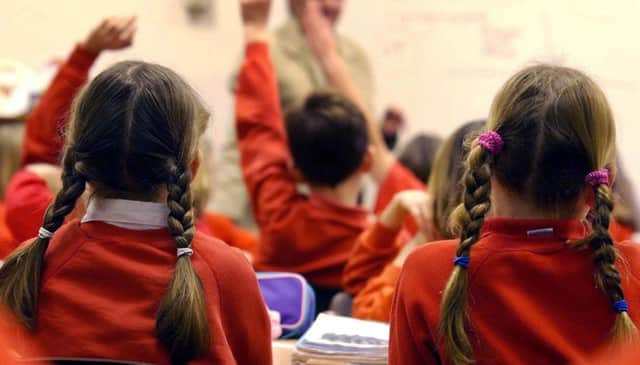Schools urged not to carry out baseline tests


Young children are being left tearful and frustrated by the Government’s literacy and numeracy checks, which risk harming youngsters’ self-esteem and their future education, according to the Association of Teachers and Lecturers (ATL) and the National Union of Teachers (NUT).
Around 2,000 schools in England did not administer the tests - which are taken by four and five-year-olds just weeks after they start school - when they were trialled for the first time last autumn, the unions said, and urged more to follow suit. The checks, which are officially introduced this September, are technically optional, but will be used to chart children’s progress throughout the seven years of primary school.
Advertisement
Hide AdAdvertisement
Hide AdThe baselines scoress will then be used to hold schools accountable for pupils’ progress over that time. There are three approved firms providing the tests and schools can choose which to opt for.
This includes a Yorkshire firm which gives schools an assessment system to use which doesn’t necessarily involve a test.
Calderdale-based Early Excellence, which was started in the late 1990s by former headteacher Liz Marsden, is one of three bidders chosen by the DfE to offer baseline assessments to schools.
Last year around two-thirds of primary schools nationally chose Early Excellence’s system.
Advertisement
Hide AdAdvertisement
Hide AdIt does not involve any formal test but does require teachers to make 47 judgements about each pupil. However, schools are left to decide how to make these assessments themselves.
Ministers have insisted that the move will help ensure children leave primary school with a good standard of reading, writing and maths.
But a report commissioned by the ATL and the NUT concludes that many teachers and school leaders have serious doubts about the accuracy of the assessments, with just 7.7 per cent of union members polled saying the data gathered was an accurate and fair way of assessing children.